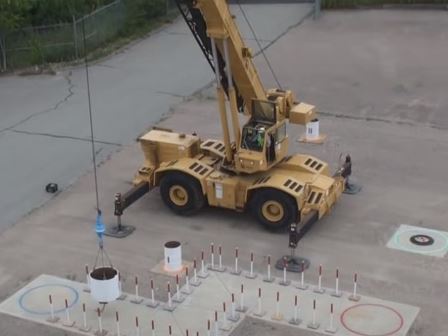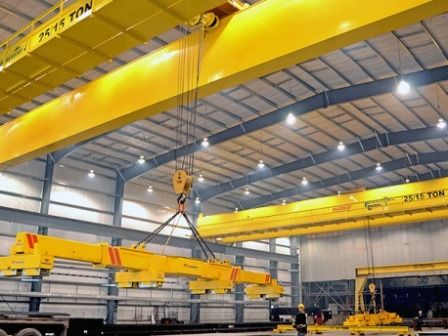Becoming a crane operator typically involves a combination of education, training, and on-the-job experience. How do I become a crane operator with no experience? These are the general steps you can take to become a crane operator:
Educational Requirements: High School Diploma or Equivalent: Most employers require a high school diploma or its equivalent.
Math and Science Courses: Taking courses in math and science can be beneficial, as crane operation involves understanding weight, balance, and spatial relationships.
Age and Physical Requirements: Crane operators often need to be at least 18 years old. Good physical condition is essential, as the job may involve long periods of standing, climbing, and working outdoors.
Crane operator skills
Many trade schools offer a mobile crane operator certification, which covers the basics of crane operation for those new to the field. Depending on the job you want, you can also take specialized training courses that prepare you to operate other types of cranes and heavy equipment.
Choose a Specialization: Decide on the type of crane you want to operate. Cranes come in various types, such as mobile cranes, tower cranes, and overhead cranes. The specific type of crane you operate will determine the training requirements.
Training Programs: Enroll in a crane operator training program. These programs are offered by vocational schools, community colleges, and trade unions. Look for programs accredited by relevant industry organizations.
Crane operator certification
NCCCO Certification: Consider obtaining certification from the National Commission for the Certification of Crane Operators (NCCCO). While not always mandatory, NCCCO certification is widely recognized in the industry and can enhance job prospects.
On-the-Job Training: Gain practical experience by working as an apprentice or trainee under the supervision of an experienced crane operator. Many employers prefer candidates with hands-on experience.
Obtain a Commercial Driver’s License (CDL): Depending on the type of crane you operate, you may need a CDL to transport the crane to and from job sites.
Crane operator jobs
Stay Informed about Regulations: Familiarize yourself with local, state, and federal regulations governing crane operation. Compliance with safety regulations is crucial in this field.
Networking: Join industry associations, attend conferences, and network with professionals in the field. This can help you stay informed about industry trends, job opportunities, and best practices.
Update Skills: As technology evolves and new safety standards emerge, continue your education and training to stay current in the field.
Job Search: Look for job opportunities with construction companies, crane rental companies, or other organizations that require crane operators.
How long does it take to become a crane operator?
The time it takes to become a crane operator can vary depending on several factors, including the type of crane, the training program, and the individual’s prior experience and education.
In summary, the entire process of becoming a certified crane operator can take anywhere from several months to a few years. Keep in mind that gaining practical experience through on-the-job training is a crucial aspect of becoming a proficient crane operator. Additionally, the time it takes to find employment as a crane operator after completing training can vary based on the job market and individual circumstances.

Mobile crane test questions and answers
Practice questions representative of a mobile crane theoretical exam.

Overhead Crane Test Questions and Answers
exam practice
